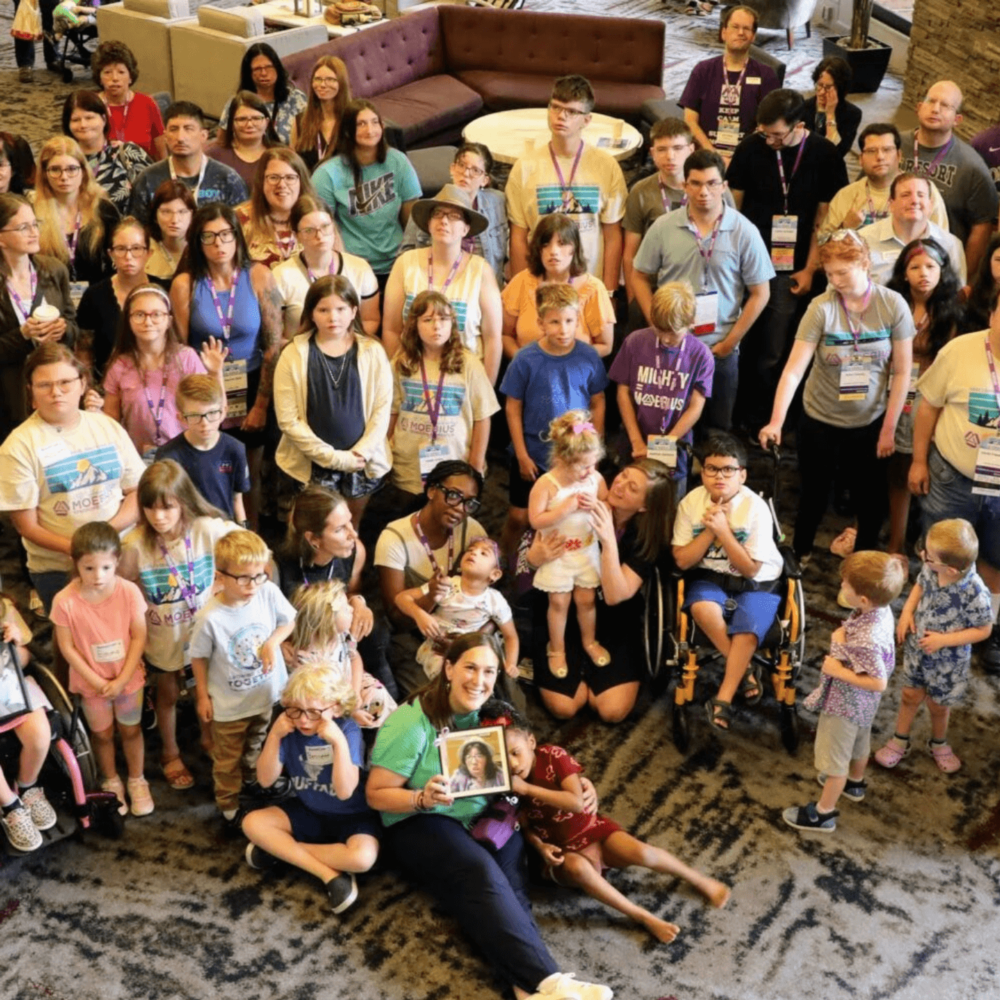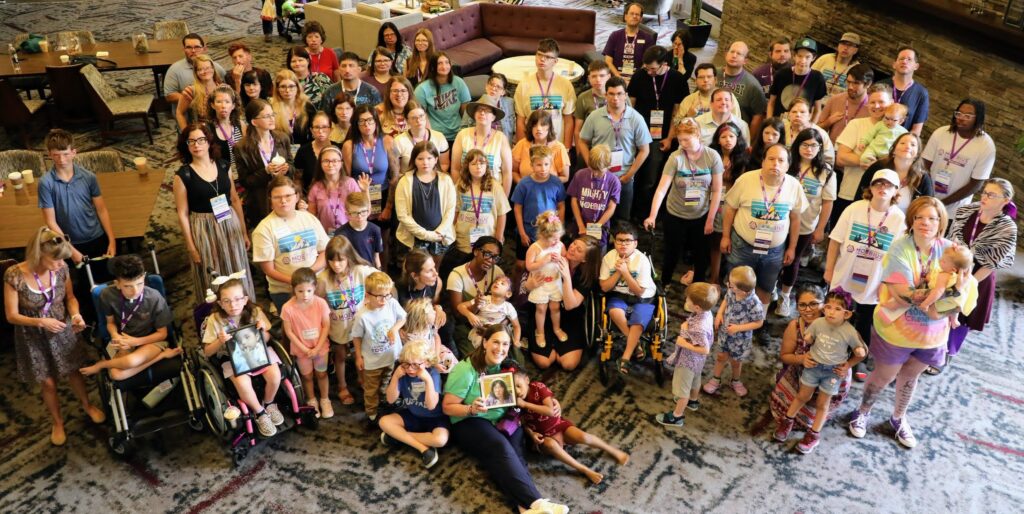
Vicki McCarrell had always dreamed of becoming a mother. When she gave birth at age thirty-eight to her son Sean, life seemed complete. Yes, he had the full facial paralysis typical of Moebius syndrome, but otherwise, he looked perfect to her. Indeed, at the hospital near her home in Van Nuys, California, she was given a diagnosis and not much else. Nobody told her how to feed a baby who could not suck or even warned her that it would be an issue.
With her husband back at work as the manager of a construction company, McCarrell was alone at home with a hungry, crying baby. She grew frantic. Sean was not getting anything down his throat no matter what she tried. She reached a breaking point when a pediatrician scolded her that Sean was losing weight as if she was not desperately worried about that exact thing. None of her friends with typical children had advice. The doctors were no help. What was she going to do?
That’s when McCarrell’s scrappy Missouri farm-girl spirit came out. If something isn’t working right, she thought, you fix it with what you have on hand.
She went to her sewing basket, picked out the biggest needle she had—the one for darning socks—and heated it in the flame of her gas stove. She stuck it through the rubber nipple, widened the hole, and offered the bottle to her baby. Sean drank and drank.
McCarrell decided then and there to change things for Moebius families. They shouldn’t have to live like castaways on a desert island, isolated and making do with scarce resources as their babies starved. She would stand in the breach between what health care can provide and what community could build. But how to begin?
One neurologist told McCarrell that she would likely never meet anyone else with Moebius syndrome. It was just too rare. But she was a Rebel Health Seeker. And Seekers go out on the hunt.
It was 1991, long before the widespread use of email, so McCarrell inserted a clean sheet of paper into her electric typewriter and tapped out a letter to the National Organization for Rare Disorders. She explained her situation and asked if they knew of other people with Moebius syndrome. No, they replied in a neatly typed letter but suggested writing to the National Foundation for Facial Reconstruction in New York. Within a week of mailing that second letter, McCarrell received a reply with contact information for three people, including a mother of a two-year-old with Moebius who lived just four miles away in Reseda, another suburb of Los Angeles.
McCarrell vividly remembers watching that child, Chelsey, running around and eating potato chips like any other kid. She felt hopeful for the first time about Sean’s future. Together with Chelsey’s mom, Lori Thomas, McCarrell started the Moebius Syndrome Foundation.
McCarrell and Thomas decided not only to fix what was broken in their own health care experiences but also to send out a beacon to guide others to their safe harbor. And with that, they stepped into their roles as Rebel Health Networkers.
The Moebius Syndrome community recently gathered in Salt Lake City, Utah, to celebrate the 30th anniversary of the Foundation. I was honored to attend and speak at the conference.

In one of the break-out sessions, Kathleen Bogart, PhD, led a discussion about ableism that included the following question: How would our world be different if everyone had Moebius?
One of the youngest people in the room, a child sitting with their mom, spoke up first: “People would be kinder to each other.” Another attendee said: “We would have different ways to communicate.” Someone in the back added: “We would stop banning plastic straws!” and the whole room laughed (plastic straws are essential drinking tools for people with facial paralysis). A fourth person said: “The world would be more like our conference – inclusive.”
Here’s to building communities that are kind, inclusive, and help everyone live their best life. And thanks to the pioneers who stand in the breach, demanding visibility for their communities.
This essay was adapted from Chapter 4 of Rebel Health: A Field Guide to the Patient-led Revolution in Medical Care (MIT Press, 2024).
That is a beautiful story. Kids always have the best answers